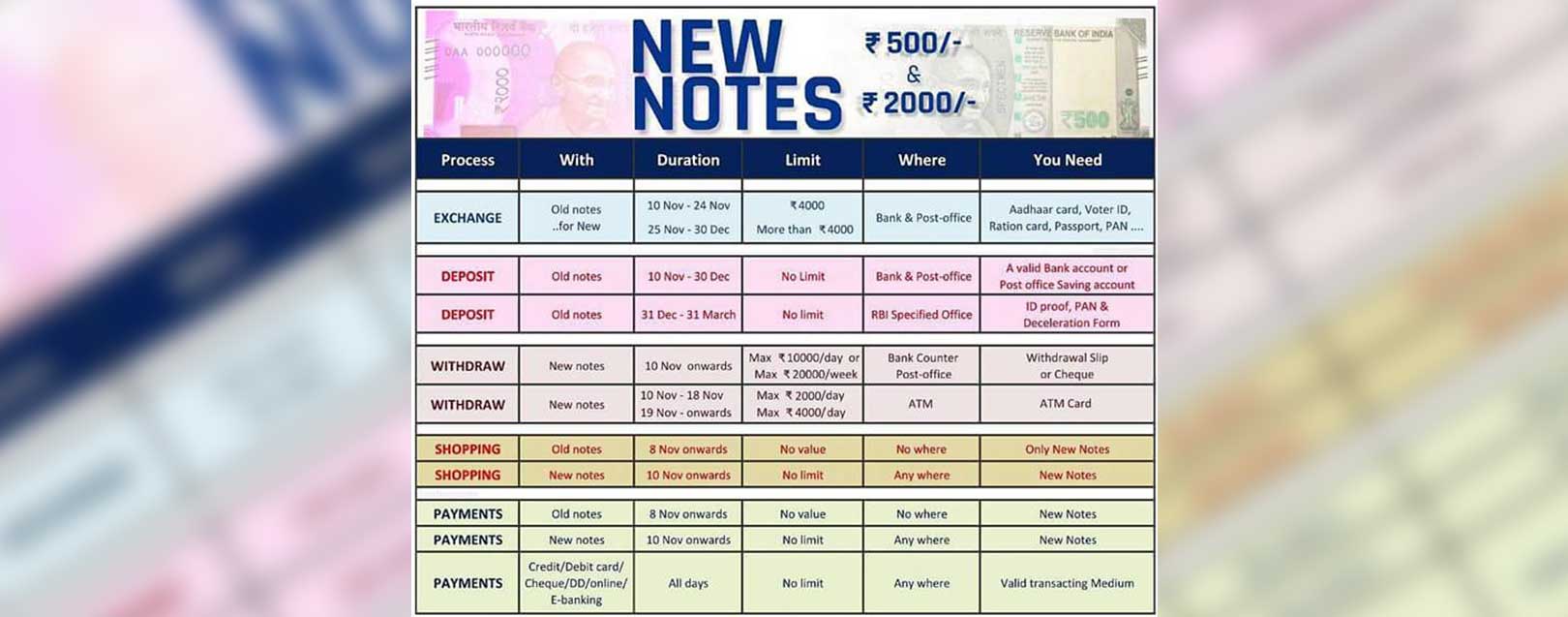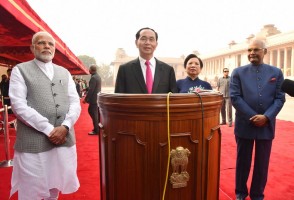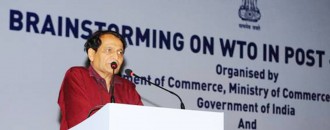
Recall of Rs.500 and Rs.1000 notes: How will it impact the industry?
Aamir H Kaki
In an unexpected move, Prime Minister Narendra Modi announced the demonetisation of Rs.500 and Rs.1,000 notes from midnight. This move has been welcomed by the industry leaders, who said that it has been a ‘bold step’ and a great attack by government to curb black money.
But what would be the impact on corporates, exporters and bankers, on this move by the government. Let us take a look.
SMEs: Many SMEs operate on cash for small transactions as well as for employee payments. The sudden demonetistion will hamper trade in the short term, though most see it as a positive for the sector.
Viren Bavishi, Director, Trade Association of Information Technology (TAIT), the association of SMEs in IT sector, says, “Now that black money will be slowly out of circulation. It would become easier for SMEs to compete against big time corporates and overall the tax evaders. It may affect our day-to-day transactions for a few days. It is not that government has prohibited cash transactions. It is only temporary that you don’t have enough cash on hand. Initially for a few days, things will be disturbed and people have hardships, like daily wages and cash at home, as we are not able to use 500 and 1000 rupee notes. In the long term it would be a positive move by the government."
ICT Industry: The technology industry will get a fillip as the drive towards a cashless economy will mean more investments on ICT.
Anwar Shirpurwala, Executive Director, MAIT, the apex body representing the Indian computer hardware, training and software industries, said, “We applaud the decision taken by the government to eradicate black money. This move clearly indicates that we will be depending more and more on the ICT. This move has been possible because of the availability of technology and multiple means of financial transaction.”
Foreign Trade: Though misinvoicing in foreign trade has been a malaise and according to Global Financial Integrity, a firm that tracks illicit money in trade, a large amount of black (illicit) money is moved through this route from India, exporters and importers seem to be happy with the move as it could mean less corruption and entry and exit points.
Pawan K Goel, CEO, Chemical Resources, a 100% export house engaged in nutraceuticals and herbal extracts, said, “It is really a much needed move by the government to curb the black money. It will not have any adverse impact on our business.”
Retail: Though the lack of liquidity in the hands of the consumers is bound to hit the retail trade, the sector is happy as the country moves towards a cashless economy, which would translate to lower transaction costs and time.
Praveen Khandelwal, Secretary General, The Confederation of All India Traders (CAIT) has termed this as a brave step and said,“It’s a greatest attack on black money taken by any Government so far and Prime Minister deserves all compliments for such a bold step. Of course for some time the markets will be under turmoil since it will greatly affect capital liquidity in the market but in the long run it will redefine Indian economy with transparency as its basic fundamental. Consumer will certainly not visit markets or few days because of very limited quantity of small denomination currency but over a period of time it is hoped that situation will become normal.”
Large Corporates: Most large corporates are anyway looking for ways to increase transparency in their transactions. Not having to deal with large cash transactions will only help improve compliances.
Commenting on the demonetisation move, Harshavardhan Neotia, President, FICCI, said, “This is an extremely bold move by the Prime Minister and will have a debilitating impact on the parallel economy in the country as well as deal a body blow to terror financing. FICCI completely supports this move of the Government and complements it for its continuous and comprehensive measures to deal with the issue of black money in the country.”
“There could be some inconvenience that this change may lead to for the people of our country for a few days. However, we are sure that government and RBI will take adequate measures to ensure the transition happens smoothly. We appeal to all sections of society to support this initiative and help India’s economy gain strength by addressing the menace of black money and illicit transactions”, he added.
Real Estate: That black money has played a large role in the unorganised real estate sector, is a fact. The real estate markets are in jitters with analysts saying that prices could fall by more than 20%. The shares of leading realty companies like DLF, Godrej Properties, Unitech, Indiabulls Real Estate, Oberoi, Sobha, Unitech and HDIL crashed by 10% to 20%. However the move could bring transparency to a much maligned sector.
Anuj Puri, Chairman & Country Head, JLL India said, “The banning of higher currency notes is a major move which will help curb unaccounted-for cash in the real estate sector. We have just witnessed a tremendous step towards increased transparency in the Indian real estate industry. The effects will be far-reaching and immediate, and shake up the sector in no uncertain way. Stricter measures against black money have for long been required to help bring about greater transparency, give the Indian real estate sector more credibility and make it more attractive for foreign investors.
“Black money deals are more common on the unorganized market, but this practice has, in fact, been on the decrease with greater awareness on the part of buyers. Before too long, the caricatured version of black money driving Indian real estate is no longer applicable,” he added.
Banking: The banking industry will get a boost, with more money moving through the formal channel.
ICICI Bank chief Chanda Kochhar said, “It’s perhaps the most significant move ever taken to curtail the parallel economy. It will give a sharp boost to all formal channels of payments which in turn will help the formal economy to grow at a faster clip in the long term.”
E-tailers: The Cash-on-Delivery (COD) payment method was a great innovation for India’s etailers to penetrate markets that were not comfortable with online transactions. But COD also came with higher cost of transaction as well as higher return rates. With the move the CODs may slowly fade away, resulting in better margins for e-tailers.
In a statement, Kunal Bahl, Co-founder & CEO, Snapdeal said, “We welcome the Government’s bold and courageous move to weed out black money, which will have significant long-term benefits for the economy. With this, the quantum of India’s economy moving through the digital pipes will witness massive growth. Both Snapdeal and FreeCharge are committed to supporting all such initiatives.”
Bhavish Aggarwal, Co-founder & CEO of Ola, said, “As a nation, this is our first major step towards a cashless economy, bringing convenience and transparency for every Indian. This move is integral in realising our shared vision of a Digital India.”





 to success.
to success.